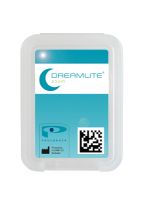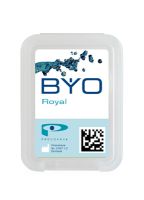Presbyopia – also known as age-related farsightedness – is a natural process by which near vision becomes blurred. Usually this happens around the age of forty, but it can happen earlier or later. In order to focus properly on close objects, your eye lens must make itself more convex (accommodate). The lens of the eye becomes less elastic over the years, making this increasingly difficult. The accommodation capacity decreases. Reading glasses or multifocal contact lenses offer the solution here.

Multifocal contact lenses
Having trouble reading the fine print? Don’t worry, almost everyone faces this. It’s called presbyopia and usually begins around the age of 40. As you age, the elasticity of your eye lens decreases and focusing at close range becomes more difficult. This is especially noticeable while reading or working at close range. The eye cannot focus as well and needs a reading additive to correct the problem. Don’t feel like using reading glasses? Choose multifocal contact lenses. You’ll see sharply all day long, both far and near.
Multifocal lenses are lenses that allow you to see sharply at all distances. They are an ideal solution for single contact lens wearers, presbyopes and active people.
Your eye, your lens
- Near and far sharp vision
- No need for reading glasses
- Doesn’t take long to get used to
Our contact lens solutions
Frequently Asked Questions
What causes presbyopia?
Which contact lens is best for my eyes?
It depends entirely on you and your eyes. During an eye exam an eye care specialist assesses your eyes and looks at the strength and shape of your eye, among other things. You personal situation is also evaluated: When do you want to use them? How often? In what work environment? Based on all the measurements, you can choose the best lenses together with the specialist. Visit your nearest optician for an eye exam or consultation.What are the benefits of contact lenses?
Contact lenses offer freedom, endless possibilities, and for some, they are even the only chance for good vision. The benefits of contact lenses: • They are ideal for playing sports and exercise; • Contact lenses cannot fog up; • Compared to eyeglasses, they typically offer a wider field of view with less image distortion; • They are invisible; • Contact lenses come in many shapes and sizes.





